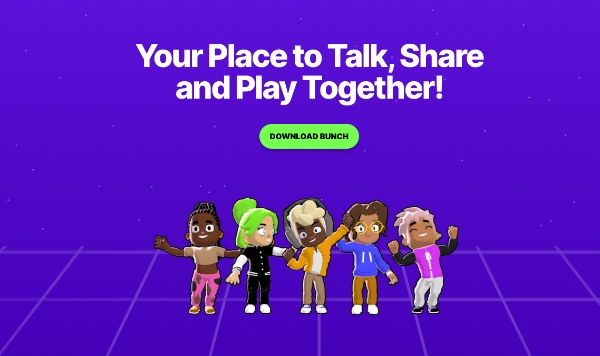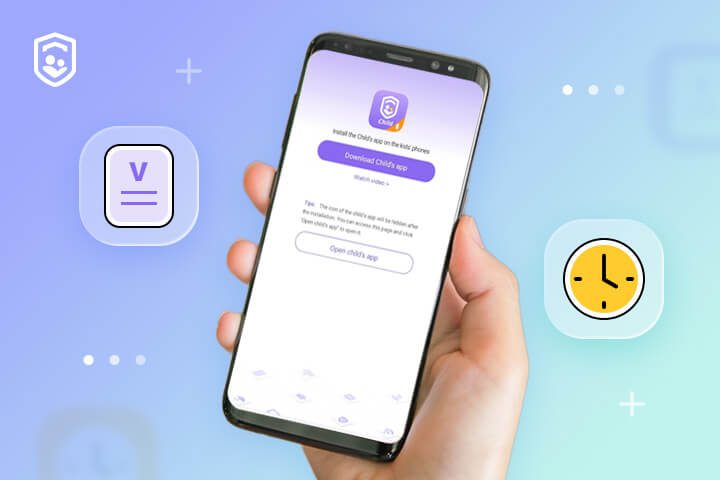As technology advances, so do the ways in which kids can potentially access inappropriate content or engage in risky online behavior. One area of concern for parents is the emergence of secret apps that look like games on the surface, but are actually designed to secretly store and share content, communicate covertly, or access potentially harmful websites.
For parents looking to protect their children’s online safety, understanding these secret apps that look like games is crucial.
What are secret apps that look like games?
The apps that secretly appear like games are software applications which make their real functions to be covered by an appearance of a game interface.
They take advantage of the popularity and acceptance of gaming apps to successfully pass their real intentions pretending to be just an ordinary platform that won’t alert a user’s suspicions.
- Photo/Video Vault Apps: These apps look like games but secrete a virtual safe in their core to store and hide private pictures, videos, or other media files that can be accessed by logging in secretly or through gestures.
- Secret Messaging Apps: After all it’s just one more game that allows them to secretly exchange messaging and thus often with people whose identity they don’t even know without their parents’ consent.
- Anonymous Browsing Apps: These applications are appearing in form of games while their purpose is to enable a browser to browse the web anonymously, which, however, leads to easy access to the restricted or immoral internet websites with no keep of the device’s browser history.
- Secret Virus Apps: These games might look like real videos or games, but when the user clicks on them, the device becomes infected with malware, viruses, and other dangerous programs, the user remains unaware of this.
- Secret Financial Fraud Apps: The sad thing is that while they might look like ordinary games, these applications have several unseen characteristics like malfunctions that allow financial scams, such as bank details stealing and committing illegal financial activities.



Part 1: Secret apps that look like games with hidden chat features (secret messaging apps)
Specific messaging platforms that resemble games continue to pose an issue for parents as well as guardians.
These seemingly harmless apps use hidden chat features and let children have private conversations that parents may rarely be monitoring.
These apps most often work on both iOS and Android, which emphasizes the importance of parents keeping informed about the functionalities and potential dangers these apps might pose.
1. Yubo
Yubo& formally called Yellow, is a stealth messaging app that appears to be a game on the surface.
It provides a live-streaming platform where people communicate through video conferences, and instant messaging.
While introduced as a way to make new friends, Yubo has drawn criticism for its inadequate age verification.
Unique Features
- Live video streaming with strangers
- Location-based user discovery
- The ability to create public or private chat rooms
Rating: 17+
2. BetweenChat
The app, BetweenChat, is a messaging-game cross-platform for the purpose of hidden message communication between two persons.
Disguised as a common puzzle game, the app allows users to have encrypted conversations with a particular person and share photos, and messages.
The secrecy is the main reason why it is appealing to those who want privacy.
Unique Features
- End-to-end encrypted messaging
- Self-destructing messages
- Password-protected chat room
Rating: 12+
3. Plato
Plato is a new messaging app that looks like a game but has the hidden function of providing a platform for private communication.
The education game allows users to chat privately in their own rooms and engage in conversations without disclosing their names.
Unique Features
- Completely anonymous chat rooms
- Ability to make public or personal discussions.
- Integration with social media platforms
Rating: 17+
4. Confide
Confide is a secret messaging apps that resemble games and is used for secure communication.
Camouflaged as a plain note-taking app, Confide implies encrypted end-to-end messaging, where both messages and files get deleted after reading.
This application is often utilized in business to give employees an opportunity for confidential communication.
Unique Features
- End-to-end encrypted messaging
- Self-destructing messages and files
- Screenshot protection
Rating: 17+
5. Bunch
Bunch is a secret messaging app that looks like a game and is marketed as an app for connecting with friends and family.
Taking the form of a casual gaming app, Bunch gives you private group chat, video calls, and a shared calendar.
Unique Features
- Private group messaging and video calls
- Joint calendars and activity planning
- Customizable group avatars and nicknames
Rating: 12+
Part 2: Secret virus apps that look like games
It is important for parents to be aware that apps which appear to be games but are actually secret viruses pose a risk to the online safety and device security of their children.
These applications pretend to be harmless and yet they are developed to introduce viruses and malware and even spyware into the users’ devices.
These apps are often found on third-party app stores, or they are shared through unofficial channels therefore parents should be careful while downloading them for their kids.
6. City Traffic Moto Racing
City traffic moto racing is a hidden virus application that resembles a game and is intended for pre-teens so that they can be tempted by colorful graphics and racing themes.
When installed, it can download spyware or keyloggers onto the device, which can be dangerous because they expose sensitive information.
Unique Features
- Pretends to be a kids-friendly racing game.
- Loads the device with malware or key loggers.
- It could allow hackers to gain remote access.
Rating: 2+
7. Find The Difference – Puzzle Game
Find the difference is a secret virus app hiding behind games, and it appears to be an intriguing puzzle that needs to be solved.
As soon as it is installed, it can affix Trojans and rootkits to the computer, eventually giving illegal access to cybercriminals or violating the device’s security.
Unique Features
- Pretends to be a mind-boggling puzzle game.
- It gets Trojans or rootkits into the device.
- May allow cyber thieves to gain illegal access to our system.
Rating: 12+
8. Scary Prank
Scary Prank is a misleading application for Android claiming to be a harmless prank app that in reality installs a trojan horse virus that works in the background.
After installation, it may show invasive ads, the browser might redirect to malicious websites, or the device may be held for ransom.
Unique Features
- Trojan horse viruses that are disguised as prank apps.
- Indiscriminately shows intrusive ads and redirects.
- Can lock for ransom the computer.
Rating: 12+
Part 3: Secret Financial Fraud Apps That Look Like Games
These kinds of shady financial fraud apps that look like games create a real problem for the users, especially children and naive people.
These fake apps would mimic real games involving gambling and investments, whilst the ultimate goal was to trap users into sharing their personal financial info.
Parents must be alert about these apps and instruct their children of the dangers. Here are four examples that parents should be aware of:
9. Fun In Basket
Fun In Basket in the disguise of a simple game of basketball is actually a phishing application to gain access to financial data.
It asks to enter the credit card number details or banking credentials, stating that one must verify one’s identity to access the next game levels.
Unique Features
- Phishing scheme, which is disguised as a basketball game.
- Luring users to reveal credit card or banking details.
- Steals sensitive financial information
Rating: 18+
10. Lucky Winner
Lucky Winner is a secret financial fraud app, which supposedly is a casino-type game, and lets you win huge prizes.
Nevertheless, users must supply personal and financial data such as credit card numbers in order to “legitimize their wins.”
With this information, criminals may be able to commit fraudulent activities.
Unique Features
- Cheating casino games and giving out prizes.
- Requests credit card and personal information for “verification.”
- Stolen data is used for fraudulent purposes.
Rating: 17+
11. Crypto Clash
Crypto Clash is a game where you are supposed to learn about crypto-buying, crypto-selling and crypto-investing.
Yet, the app is a scam that deceives the users by providing their wallet information or transferring funds to the app owners under the pretext of making investments.
Unique Features
- Camouflaged as a cryptocurrency trading game.
- Scams by making users share their crypto-walled information.
- Steals cryptocurrency funds presenting investment opportunities.
Rating: 18+
12. Stock Simulator
The Stock Simulator is an undisclosed fraud finance app that camouflages itself as a stock market simulation game.
It allows users to create accounts and share their personal and financial information, including bank account numbers and social security numbers, to take part in “realistic’ trading scenarios.
Unique Features
- Disguises itself as a stock market game simulation.
- Asks to provide personal and financial data for “lifelike” trading.
- Leads to identity theft and financial fraud.
Rating: 18+
How to keep online safety for kids and family?
As more and more secret apps that resemble the games appear, it makes sense for parents to take preventive steps to keep their children safe online.
Parental monitoring apps also have advanced features for more thorough online safety. One of the parental control apps with rich options to ensure online safety for your family is FlashGet Kids.



It goes beyond basic parental controls by offering features to create a safe and healthy online environment, such as an app blocker, a screen time limiter, and notifications.
Conclusion
In the modern digital world where the pace of changes is relentless, the parents need to keep up with these secret apps offering them seemingly innocent games.
In fact, it is not as simple as it may look. These apps can lead to access of inappropriate content, cyberbullying as well as online predators, financial risks and privacy issues.
To create a safer digital environment for the kids, families have the opportunity to use parental communication; they can also be monitoring their devices as well as employing tools like the FlashGet Kids apps.
Therefore, the role of every parent is to teach their kids about the very dark hidden sides of these seemingly innocent characters.

